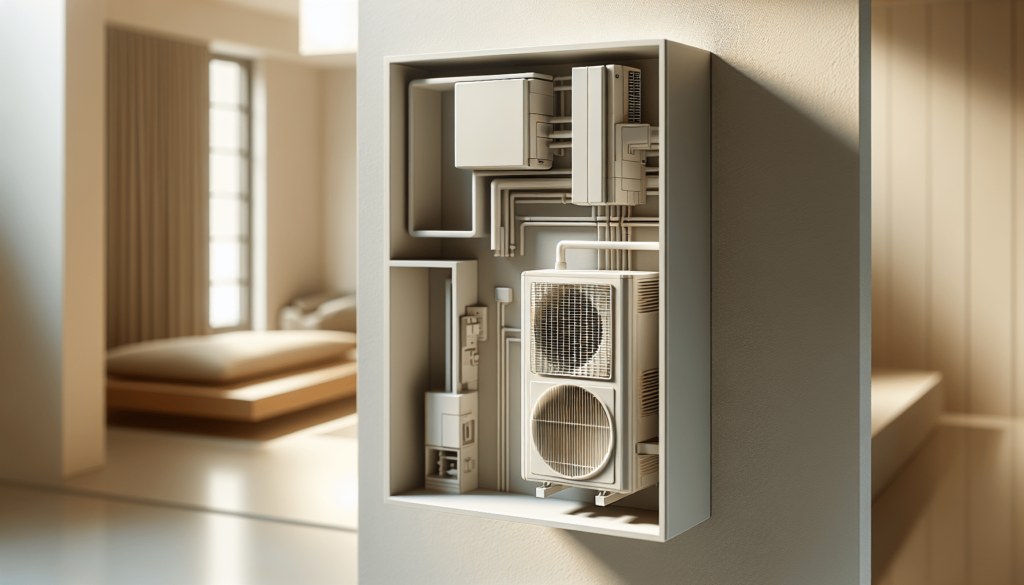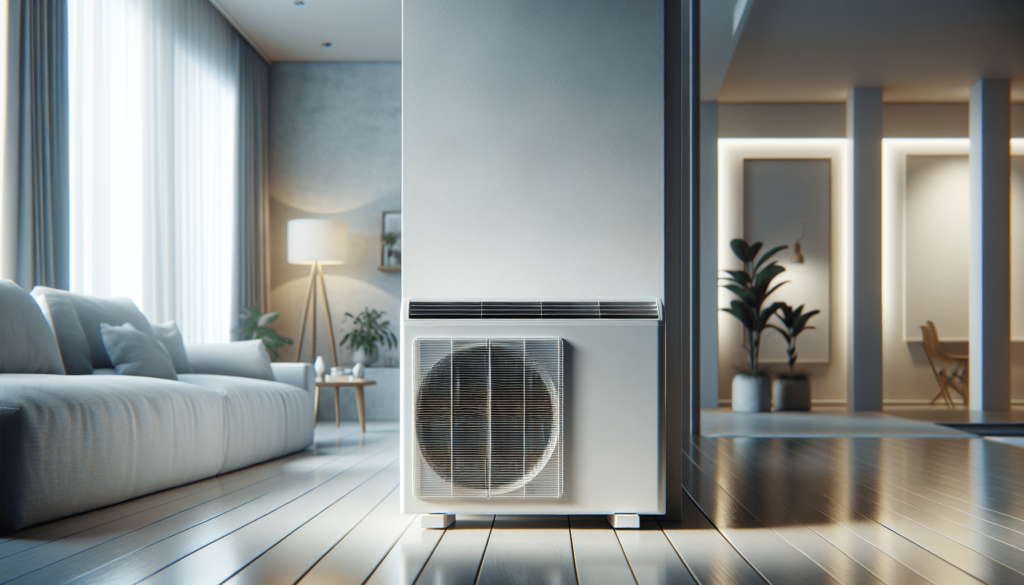Welcome to a discussion on the environmental impact of mini split systems. In this article, you will learn about the eco-friendliness of these HVAC units and how they compare to traditional heating and cooling systems. By exploring the efficiency and environmental benefits of mini splits, you will gain insight into making a more sustainable choice for your home or business. Let’s delve into the world of mini split systems and their impact on the environment.
The Environmental Impact Of Mini Split Systems: Are They Eco-Friendly?
If you’re considering installing a mini split system in your home to keep you cool in the summer and warm in the winter, you may be wondering about its environmental impact. Are mini split systems eco-friendly? Let’s dive into the details and find out together.

This image is property of pixabay.com.
What Are Mini Split Systems?
Mini split systems, also known as ductless mini split systems, are heating and cooling units that are mounted on walls or ceilings in individual rooms or zones. They consist of an outdoor compressor unit and one or more indoor air-handling units.
These systems are becoming increasingly popular because they provide energy-efficient heating and cooling solutions for homes and buildings.
Energy Efficiency
One of the main reasons mini split systems are considered eco-friendly is their energy efficiency. Unlike traditional HVAC systems that use ducts to distribute conditioned air, mini split systems deliver air directly into the room, minimizing energy loss.
Mini split systems also use inverter technology, which adjusts the compressor speed based on the room’s cooling or heating needs. This results in lower energy consumption and reduced greenhouse gas emissions.
Refrigerant Type
Another factor that contributes to the eco-friendliness of mini split systems is the type of refrigerant they use. Older HVAC systems typically use refrigerants like R-22, which are harmful to the environment.
Most modern mini split systems use R-410A, a more environmentally-friendly refrigerant that does not deplete the ozone layer. Some manufacturers are also transitioning to even more sustainable refrigerants like R-32, which have lower global warming potentials.
Installation Process
The installation process of mini split systems also plays a role in their environmental impact. Because these systems do not require ductwork, there is less material waste during installation.
Additionally, mini split systems can be easily installed in individual rooms or zones, allowing for more precise temperature control. This can lead to energy savings and lower greenhouse gas emissions compared to central HVAC systems.

This image is property of pixabay.com.
Noise Levels
In addition to being energy-efficient and environmentally-friendly, mini split systems are also known for their quiet operation. The outdoor compressor unit generates less noise compared to traditional HVAC systems, making mini split systems a great choice for residential areas.
The indoor air-handling units are also designed to operate quietly, providing a comfortable and peaceful environment in your home.
Integrated Controls
Another feature that enhances the eco-friendliness of mini split systems is their integrated controls. Many modern mini split systems come with programmable thermostats and smart technology that allow you to set schedules and adjust temperatures remotely.
By optimizing your heating and cooling settings, you can further reduce your energy consumption and carbon footprint. This level of control also helps you tailor your comfort preferences while minimizing waste.

This image is property of pixabay.com.
Comparison with Other HVAC Systems
When comparing mini split systems with traditional HVAC systems, mini splits often come out on top in terms of energy efficiency and environmental impact.
Central HVAC systems that use ductwork are prone to energy loss through leaks and poor insulation. Mini split systems, on the other hand, avoid these issues by delivering air directly into the room, resulting in lower energy consumption and reduced greenhouse gas emissions.
Maintenance and Longevity
Proper maintenance of your mini split system is essential to ensure its eco-friendliness and longevity. Regular cleaning of the filters and coils, as well as annual professional maintenance, can help your system operate efficiently and prevent potential breakdowns.
Mini split systems are known for their durability and longevity, with an average lifespan of 12 to 15 years. This extended lifespan reduces the environmental impact of manufacturing and disposing of HVAC units more frequently.

Primary Benefits of Mini Split Systems
Energy Efficiency
Mini split systems are highly energy-efficient, thanks to their direct air delivery and inverter technology. This results in lower energy consumption and reduced greenhouse gas emissions, making them a more environmentally-friendly option compared to traditional HVAC systems.
Zoned Heating and Cooling
With mini split systems, you can create customized temperature zones in your home, allowing for more precise heating and cooling control. This zoned approach can lead to energy savings and reduced environmental impact by only conditioning the rooms that are in use.
Minimal Installation Impact
The installation of mini split systems is relatively straightforward and does not require ductwork, resulting in less material waste. Additionally, the compact size of the indoor and outdoor units allows for flexible mounting options, reducing the system’s overall footprint.
Quiet Operation
Mini split systems operate quietly, providing a comfortable indoor environment without generating excess noise. This feature is especially beneficial for residential areas where noise pollution can be a concern.
Smart Controls
Many mini split systems come with smart controls and programmable thermostats that allow you to optimize your heating and cooling settings. By adjusting your system based on occupancy and preferences, you can further reduce energy consumption and minimize your carbon footprint.
Drawbacks and Considerations
While mini split systems offer many benefits in terms of energy efficiency and environmental impact, there are some drawbacks and considerations to keep in mind.
Upfront Cost
Mini split systems can be more expensive to install compared to traditional HVAC systems, especially if you are retrofitting an existing home. However, the long-term energy savings and environmental benefits can offset the initial investment over time.
Aesthetics
The indoor air-handling units of mini split systems are visible on walls or ceilings, which may not be aesthetically pleasing to some homeowners. However, newer models come in a variety of designs and colors to blend in with your home’s decor.
Maintenance Requirements
Proper maintenance is crucial for ensuring the efficiency and longevity of your mini split system. Regular cleaning of filters and coils, as well as annual professional maintenance, are necessary to keep your system running smoothly.
Installation Challenges
Installing a mini split system may require professional expertise, especially when it comes to sizing and placement of the indoor and outdoor units. It is essential to hire a qualified HVAC contractor to ensure a proper and efficient installation.

Conclusion
In conclusion, mini split systems are considered eco-friendly due to their energy efficiency, refrigerant type, installation process, noise levels, integrated controls, and longevity. By opting for a mini split system in your home, you can reduce your energy consumption, lower your carbon footprint, and enjoy customizable comfort all year round.
If you’re looking for an environmentally-friendly heating and cooling solution that offers zoned control, quiet operation, and smart technology, consider installing a mini split system in your home. Make sure to weigh the benefits and drawbacks carefully and consult with a qualified HVAC professional to determine the best option for your specific needs.

